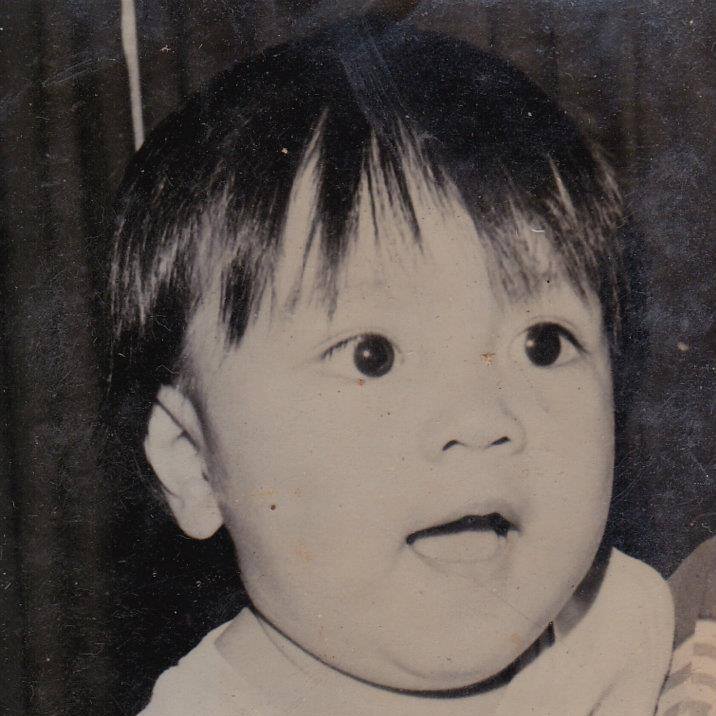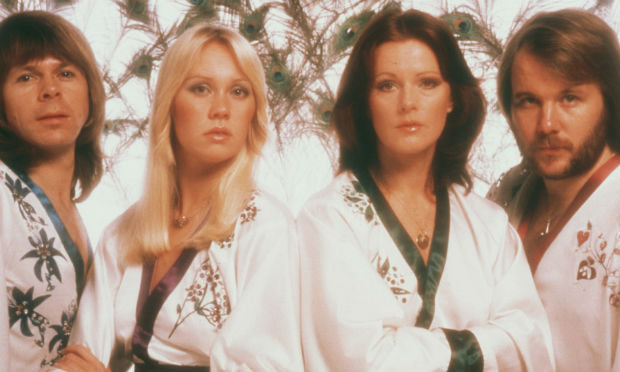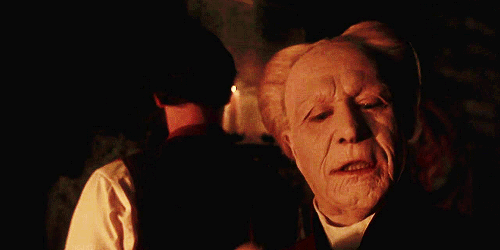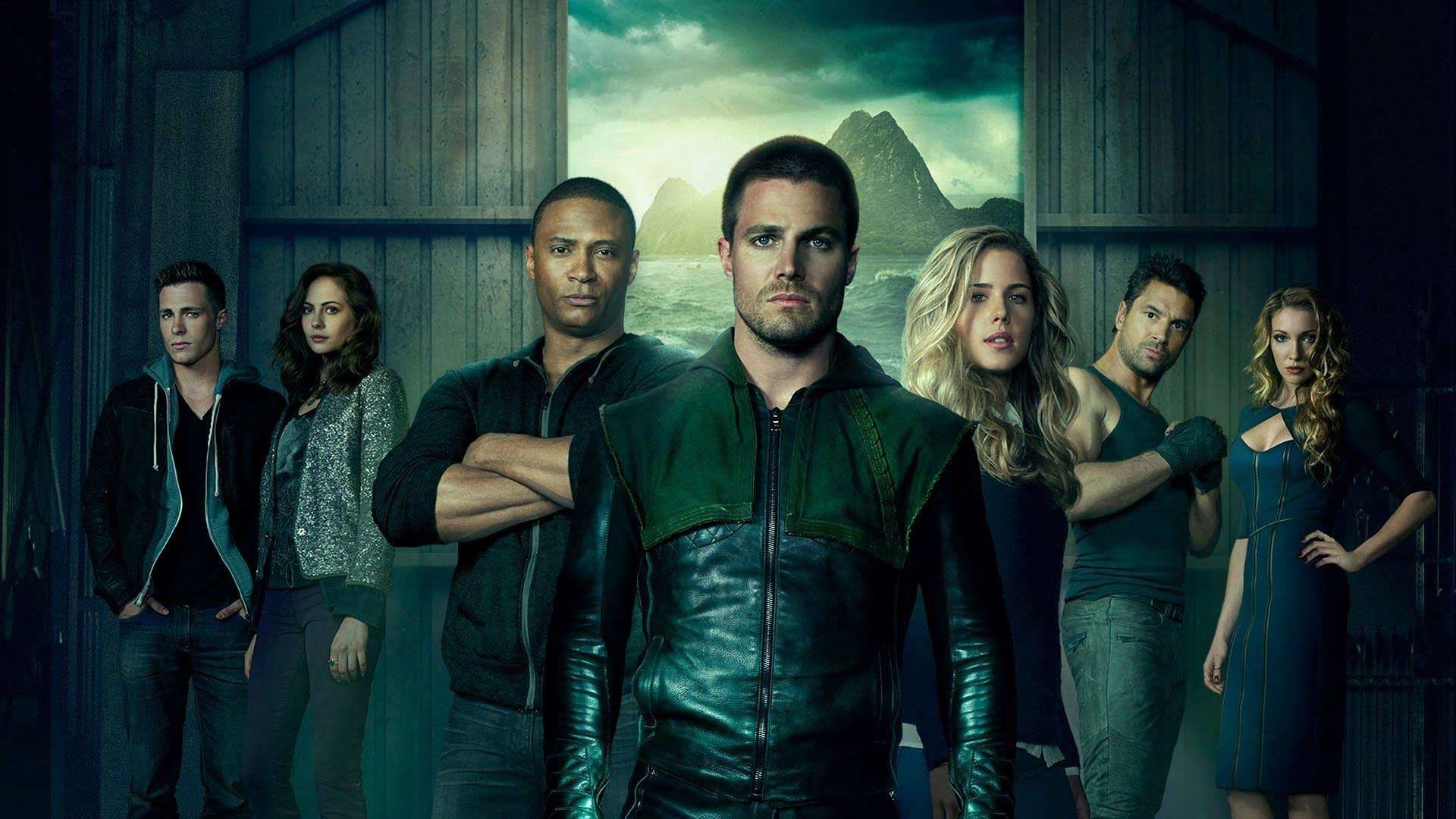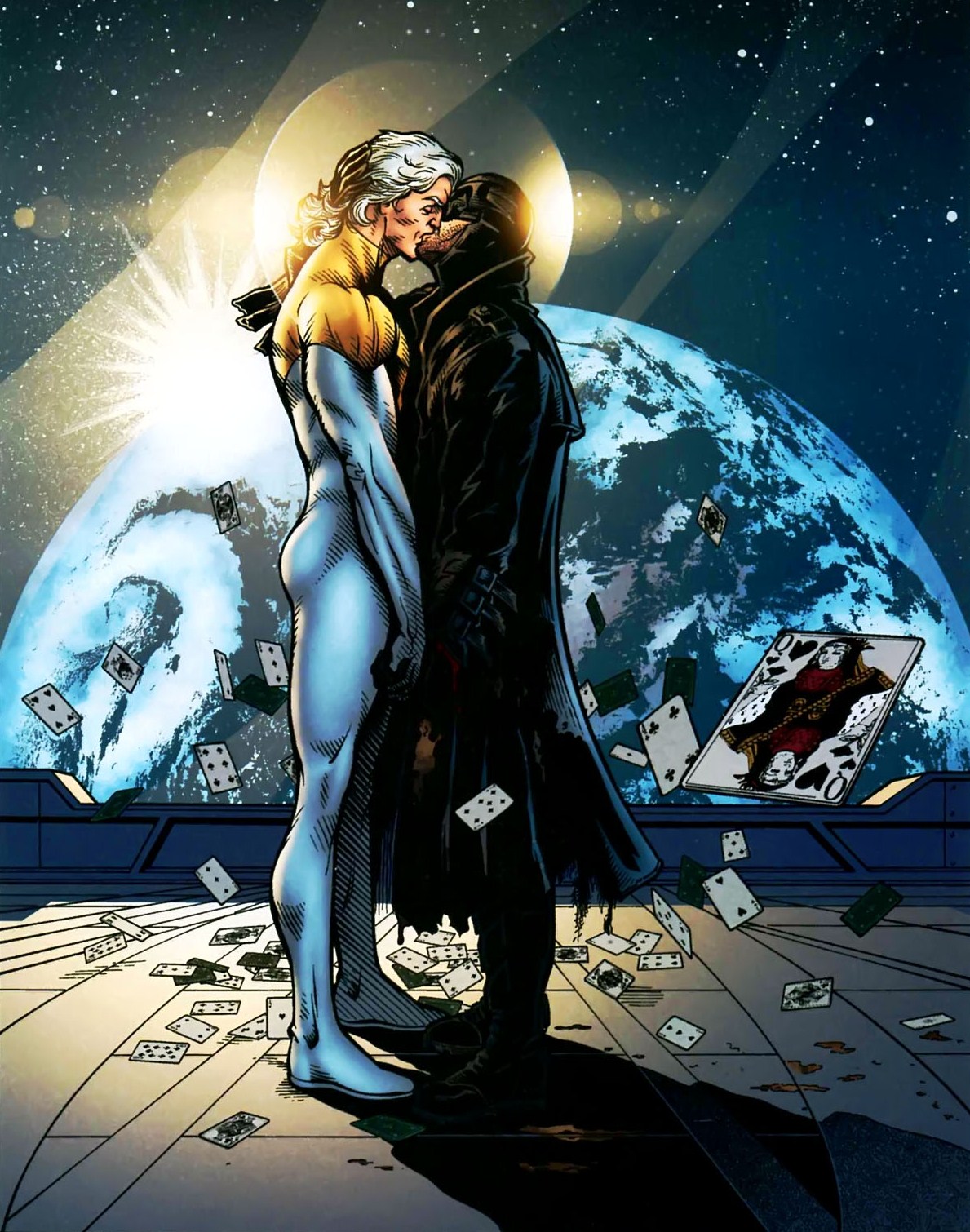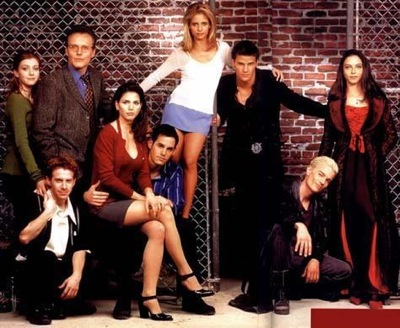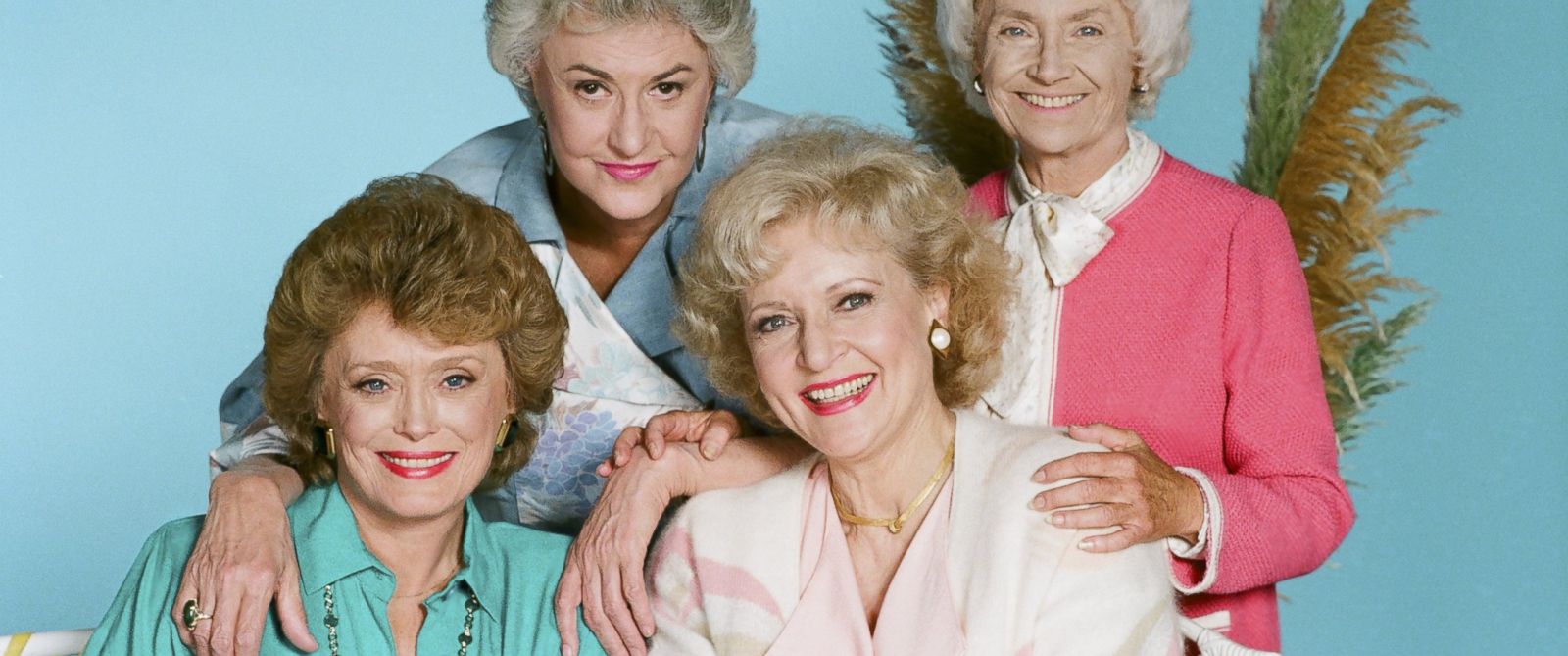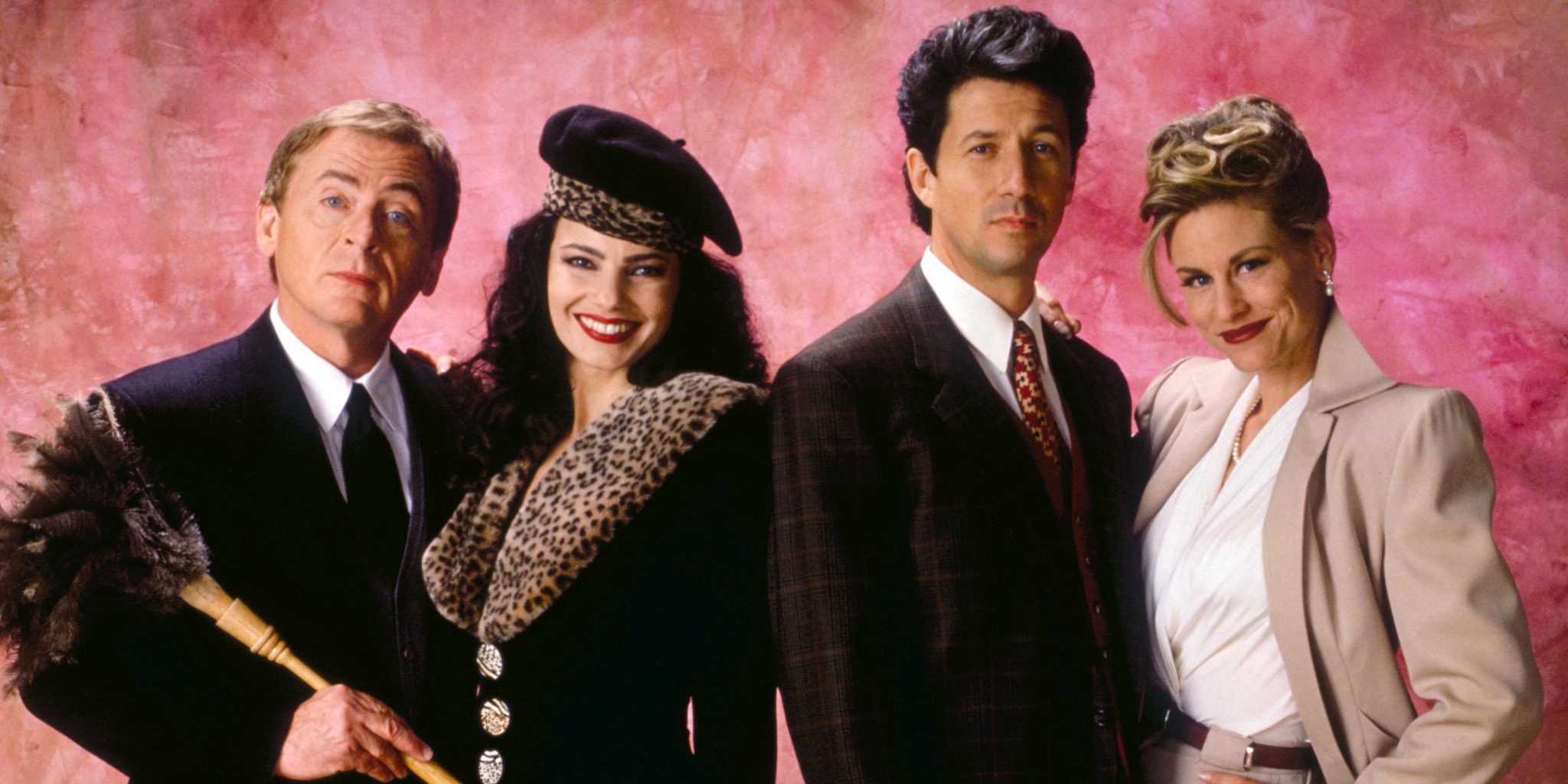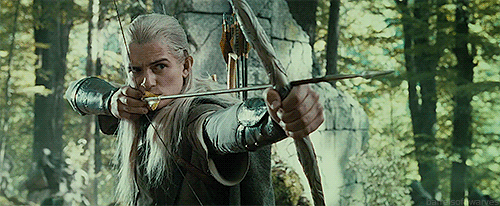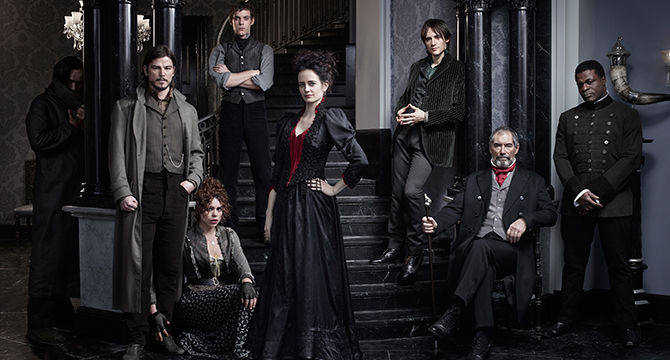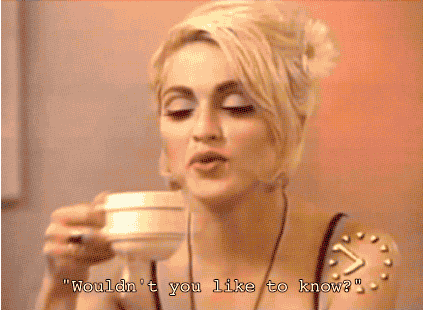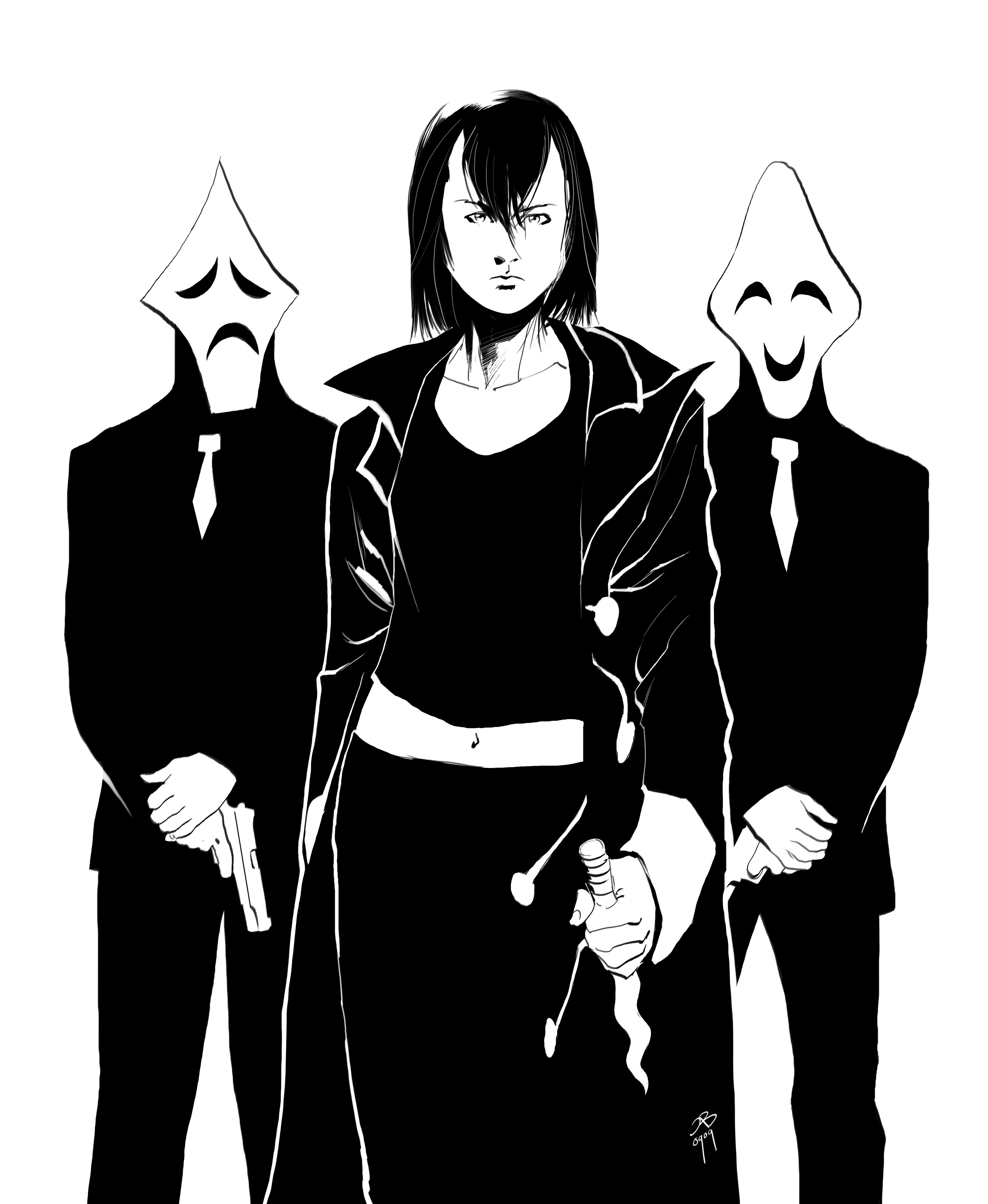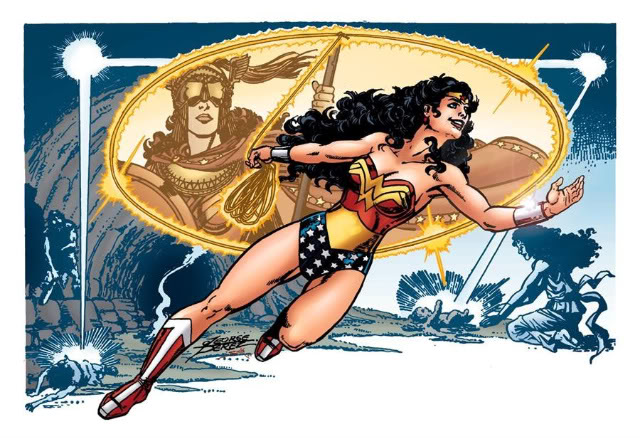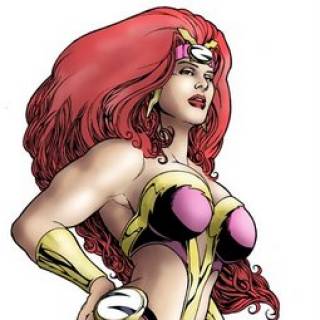Buffy Week, Day 4: This Isn’t Just Some Fanboy Thing.
by allancarreon on Mar.28, 2017, under Film & TV, Geeky, Queer
Season 4 Credits
Continued From:
Buffy Week, Day 3: Five By Five
And now, the last leg of my Top 11-30 Buffy episodes. Again, these like the rest are not in order of preference of quality but chronological in terms of air date.
 17. This Year’s Girl / Who Are You? Season 4, Episodes 14 and 15.
17. This Year’s Girl / Who Are You? Season 4, Episodes 14 and 15.
Buffy (in Faith’s body): When I had psychic power, I heard my mom think that you were like a stevedore during sex. Do you want me to continue?
Giles: Actually, I beg you to stop.
Buffy (in Faith’s body): What’s a stevedore?
Previously, I spoke about how Faith is perhaps my favorite character on the show. Complex and compelling, the impulsive and brash slayer as portrayed by Eliza Dushku was just the perfect foil to the rest of the gang. After having multiple recurring appearances in the third season, where she ended up in a coma, Faith is barely seen in Season 4 except for this two-parter where she wakes up and finds that things have changed in Sunnydale.
 Having been instrumental in the Mayor’s plans in Season 3, Faith was not there to witness his ultimate defeat, and in waking up months later, she finds herself lost and angry. A twist of magic swaps her and Buffy into each other’s bodies, bringing us into some classic “body swap stories” territory. There are of course the usual hijinks that ensue with the trope, but more importantly, the swap helps bring Faith towards the path of redemption as she experiences what it’s like to be in Buffy’s place – to have family, friends, and the love she never got.
Having been instrumental in the Mayor’s plans in Season 3, Faith was not there to witness his ultimate defeat, and in waking up months later, she finds herself lost and angry. A twist of magic swaps her and Buffy into each other’s bodies, bringing us into some classic “body swap stories” territory. There are of course the usual hijinks that ensue with the trope, but more importantly, the swap helps bring Faith towards the path of redemption as she experiences what it’s like to be in Buffy’s place – to have family, friends, and the love she never got.
It’s to the credit of Eliza Dushku and Sarah Michelle Gellar how well they swapped characters – how they managed to convince you that they were the other person with little nuances and subtle character quirks. Eliza did become Buffy, and Sarah did become Faith.
It was just such a great arc that later led to Faith’s redemption over on Angel.
 16. Buffy Vs. Dracula. Season 5, Episode 1.
16. Buffy Vs. Dracula. Season 5, Episode 1.
Buffy: So let me get this straight. You’re… Dracula. The guy. The Count.
Dracula: I am.
Buffy: And you’re sure this isn’t just some fanboy thing? ‘Cause I’ve fought more than a couple of pimply overweight vamps that called themselves Lestat.
How can I not love the season premier of Season 5? Dracula was one of the reasons why I got interested in vampire mythology, having read Bram Stoker’s masterpiece when I was fourteen – and having enjoyed various iterations of the character prior.
It’s great that while they did kind of have to make Buffy win, seeing as how she’s the protagonist, it wasn’t really a solid win, and much respect was given to the legendary vampire. It’s also one of the funniest episodes as the writers ensured classic Dracula tropes were included, including a big honkin’ castle that suddenly appeared in Sunnydale as well as Renfieldizing good old Xander.
The episode also ends on quite a twist, as we finally see Buffy’s younger sister who literally never existed before – a segue into the overall arc of the new season. And while it may seem rather like a stand-alone episode that didn’t have much to connect it with to the rest of the season, a hindsight glance reveals the thematic necessity of this episode in preparing Buffy for what was coming.
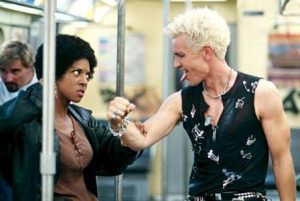 15. Fool For Love. Season 5, Episode 7.
15. Fool For Love. Season 5, Episode 7.
Drusilla: Oh, I see you. A man surrounded by fools who cannot see his strength, his vision, his glory.
Spike is another very complex character in the Buffyverse. Having began his journey in Season 2 as a primary antagonist, a cool AF bratty vampire – the Lestat to Angel’s Louis, if I may compare – Spike found himself progressing towards anti-hero as the years went by. Again, quite similar to Lestat, who started out as a villain in Interview with the Vampire but became the Brat Prince anti-hero of the entire Anne Rice universe.
In Season 4, we first saw Spike get defanged, metaphorically, when he was implanted with a chip that prevented him from hurting and killing humans. The chip, however, catalyzed Spike into an unexpected direction: that of falling in love with Buffy.
But love apparently is not a side effect of the chip. Rather, this Spike-centric episode delved into the fact that Spike, before he was turned, was always a “fool for love.” While this was apparent in his relationship with Drusilla, it was now made clear that, beneath his gruff exterior, love was one of the things that motivated him. And with his vampiric instincts suppressed, his attraction to Buffy was starting to come to the forefront.
In this episode, we not only get a glimpse of Spike pre-vampire. We also get to see more of Slayer lore as we flashback to the times when Spike killed two slayers in the past – one of which will have an impact on Season 7.
Thus, the combination of slayer lore expansion and Spike’s origin story, so to speak, cements this as one of my faves.
 14. Tabula Rasa. Season 6, Episode 8.
14. Tabula Rasa. Season 6, Episode 8.
Spike: Bloody hell. Sodding. Blimey. Shagging. Knickers. Bollocks. Oh, God. I’m English.
If it hasn’t been obvious, I seem to like episodes where the characters are acting wildly out of character (Halloween, Band Candy). Such situations just lend to such a hilarious farce, and here’s another one! In this case, there’s a slight twist as a spell gone awry has left the gang’s memories wiped out, and they have to figure out who they are, what they do, and what their relationships are with each other. This leads to some of the funniest situations as Buffy thinks her name is Joan, Giles and Anya think they’re engaged, and Spike thinks he’s Giles’ son just because they’re both British.
The episode is also a crucial turning point for the season, as Willow’s excessive use of magic has become a liability that causes them all harm and potentially places them all in mortal danger. Moreover, this marks the break-up of Willow and Tara – setting the stage for the rest of the season which will culminate in, well, Dark Willow.
All in all, really the best Buffy eps are the hilarious ones that still manage to be suspenseful and which moves the characters (and the arc) forward. Tabula Rasa is one such episode.
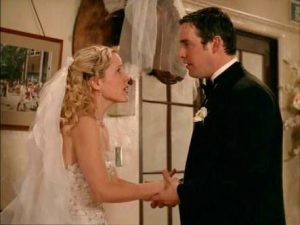 13. Hell’s Bells. Season 6, Episode 16.
13. Hell’s Bells. Season 6, Episode 16.
Buffy: He… He’s, uh, not… not just a minister, he… he’s also a… a doctor. You know, he’s half minister, half doctor. He’s a, uh, minitor. Not, of course, to be confused with a Minotaur, because he’s all, you know, manness, doctor minister man. No… no bull parts whatsoever.
Anya truly grew on me across the seasons. Initially a one-off character (okay, two-off if we consider both The Wish and Doppelgangland) who was kind of annoying, I started to dig her when she became recurring in the generally-dismal Season 4, one of the highlights of the show then. She filled the void left by Cordelia when the latter moved to Angel, and in many ways was even more hilarious. Not only was she Cordelia with significantly even less filters (who would’ve thought that was possible?), she was Cordelia in a fish-out-of-water situation – an ex-demon trying to fit back in to the modern human world and understand our culture and practices. So she was not just hilarious because of her unfiltered mouth, she was additionally hilarious with situations showing how out-of-touch she was with our ways.
Her arc really climaxed in this episode, where – after almost three seasons of dating Xander – she was set to marry him. They’d been portrayed as a couple who really worked hard in remaining a couple, given their vast differences, and their progress towards a truly loving pair was very well-executed across the years. Of course, as no one seems to be allowed to find happiness in the Buffyverse, the episode ends up with Xander leaving her at the altar, paving the way for Anya  to potentially return to her demon ways (the effects of which will be felt throught to Season 7).
to potentially return to her demon ways (the effects of which will be felt throught to Season 7).
What I additionally love about this episode – and this, I admit, is a pattern with some of my faves – is just how hilarious it truly is while being heartbreaking. From the ugly bridesmaid dresses, to Anya trying to compose her grossly-inappropriate (yet utterly sweet) wedding vows, to the explanation that Anya’s demon guests who looked bizarre were “circus performers” in order to hide the truth from Xander’s family, to Buffy’s poor excuse for delaying the wedding as the others tried to find a missing Xander… the episode was just funny as hell. It made Anya’s sorrow at the end so much more poignant.
Really, Xander, never leave an ex-vengeance demon at the altar. Especially not someone whose area of expertise is jilted women.
 12. Storyteller. Season 7, Episode 16.
12. Storyteller. Season 7, Episode 16.
Anya: For God’s sakes, Andrew, you’ve been in here for 30 minutes. What are you doing?
Andrew Wells: Entertaining and educating.
Anya: Why can’t you just masturbate like the rest of us?
Andrew Wells is another character I did not expect to become a favorite of mine. Truth to tell, many people in fandom still do not like him. And one can understand why so: he was 1/3 of the Trio of Evil Nerds – the Season 6 “Big Bad” before, almost unexpectedly, Willow blind-sided us with her dark turn because of the Trio.
What perhaps turned people off was just how pathetic the Trio really were. In many ways, they were simply moronic, human geniuses whom Buffy and the gang considered annoyances at best and criminals at worst. But that, I think, was the point: after facing master vampires, an apocalyptic demon, an advanced reality-removed cyborg, and an 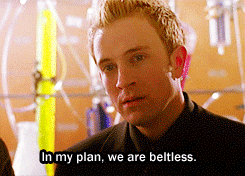 actual hellgod, what was next for Buffy? She had faced all these powerful supernatural enemies – so how does one escalate that? The answer is: you don’t. You bring Buffy down to the realities of life (well, as real as evil advanced geniuses can be), that there are some enemies who can make her life hell in a different way. And we all know that this resulted in a very human attack no one expected: a stray bullet that accidentally ends Tara’s life.
actual hellgod, what was next for Buffy? She had faced all these powerful supernatural enemies – so how does one escalate that? The answer is: you don’t. You bring Buffy down to the realities of life (well, as real as evil advanced geniuses can be), that there are some enemies who can make her life hell in a different way. And we all know that this resulted in a very human attack no one expected: a stray bullet that accidentally ends Tara’s life.
What differentiates Andrew from his cohorts is that he is the middle-ground between Jonathan and Warren. Jonathan, in many ways, still was a good person underneath, and he still tried to make the right choices along the way. Warren, on the other hand, was truly heinous and despicable. Andrew sat right there in the middle of these two – a person who was occasionaly questioned what they did but, unlike Jonathan, was too cowardly to stand up to Warren and ended up going along because he was (let’s face it) enamored with Warren.
By circumstance, Andrew found himself as part of the Scooby Gang in Season 7, initially an unwanted person they end up with but gradually someone who found a path towards redemption. After the show ended, Andrew remained to be integral to the global slayer operations as depicted in the Season 8 comic book series and beyond.
And how exactly did Andrew get to that point? Although there were already little things in prior episodes that showed this gradual change, it was Storyteller that really explored the pscyhe of Andrew. This was a boy who lived in his own fantasy world, a world where he  idealizes and sanitizes truths, a world he retreated to in order to run away from his fears and his guilt. He had long lived in denial, hiding behind his stories and his videocam to avoid facing the consequences of his actions. Once Buffy got through to him, Andrew recognized what he was and was finally willing to take responsibility for his actions.
idealizes and sanitizes truths, a world he retreated to in order to run away from his fears and his guilt. He had long lived in denial, hiding behind his stories and his videocam to avoid facing the consequences of his actions. Once Buffy got through to him, Andrew recognized what he was and was finally willing to take responsibility for his actions.
Not bad for a character who was created solely because the Brad Kane, who portrayed the character’s brother (Tucker Wells) in Season 3 in a one-off appearance, was unavailable to return to Buffy to be part of the Trio. And while I love Brad Kane, how Tom Lenk handled the character of Andrew was so fascinating it made me a fan of Tom Lenk.
 11. Chosen. Season 7, Episode 22.
11. Chosen. Season 7, Episode 22.
Anya: Come on, let’s go assemble the cannon fodder.
Xander: That’s not what we’re calling ’em, sweetie.
Anya: Not to their faces. What am I, insensitive?
We wrap up this Top 11-30 list with nothing less than the series finale.
There are a lot of things that happen in the episode that ended the show back in 2003.
Anya dies in a blink-and-you’ll-miss it moment – not in the typical “hero’s death” afforded to most protagonists of a show. Xander doesn’t even get to see it happen, much less find a body to mourn. It’s still a cause of division among fans, and while initially I thought it sucked, in hindsight it drove home a powerful point about how heroes don’t necessarily go out with a bang and how sometimes, in death, there may be no proper goodbyes. A bit nihilistic, but real.
We see a resolution, of sorts, to the Buffy/Spike relationship. Just as Spike is about to sacrifice himself and die (don’t worry, he reappears in Angel), Buffy tells him she loves him, to which he famously replies, “No, you don’t, but thanks for saying it.”
It’s one of the most painful things to say and admit, really.
We come full circle to where the series began: Sunnydale High, portal to the Hellmouth. The gang graduated in Season 3 (and the school got destroyed), and Season 7 brought the rebuilt high school back by  having Buffy be a guidance counselor there. It just felt right that it all ended here.
having Buffy be a guidance counselor there. It just felt right that it all ended here.
We see the destruction of Sunnydale after the final battle with The First’s minions (and a glorious battle it was). It’s quite fitting: many show ends because one or more main characters need to move (Golden Girls, Friends, The Nanny, and more). Well, with their town gone, the Scoobies no longer had a home and would be forced to relocate. As the succeeding Season 8 comic revealed, their relocation was nothing short of a truly new direction as they began to run worldwide “slayer operations” from a Scottish citadel.
I think, however, that what made this episode a favorite and a fitting end to the series is how it was another game-changer. I’ve used that a couple of times for some of the other episodes I like and will use it at least once more in my Top 10, but it’s also appropriate here. With all potential slayers activated around the world, Buffy (and Faith) needn’t be alone any more in their burden. They raised a literal army of slayers, which changes not just how they handled things at the local level but on a global scale.
 What’s more important is what this ultimately symbolized. Buffy thrived on metaphors, and as a feminist show, the series ended with what is perhaps one of the most powerful feminist messages of all: empowerment.
What’s more important is what this ultimately symbolized. Buffy thrived on metaphors, and as a feminist show, the series ended with what is perhaps one of the most powerful feminist messages of all: empowerment.
As Buffy noted, the slayer line ultimately began with a bunch of men making a decision to create “the chosen one” – one girl who gets chosen for a destiny she may not like, a destiny designed for her by men. This in turn begs the question of agency: does a slayer truly have agency when her purpose was thrust upon her by men? Buffy flips this over by changing the rules to be on her own terms, taking that power for one girl and giving it to hundreds of other girls. What was used to control women became a tool for women to take control of themselves: their lives and their destinies.
And that is literally and figuratively empowerment.
Continued In:














































